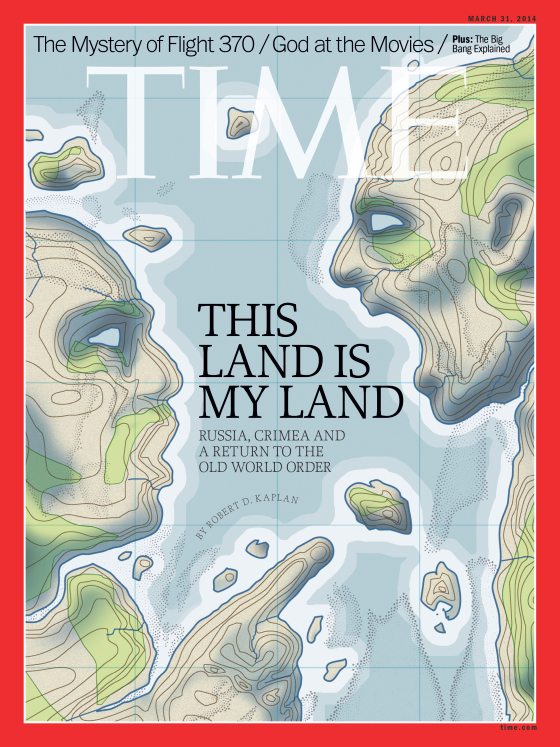 The latest TIME magazine cover story features Robert Kaplan’s observations about the ongoing role of geography in political disputes, despite ruling elites’ interest in international law and centralized political unions.
The latest TIME magazine cover story features Robert Kaplan’s observations about the ongoing role of geography in political disputes, despite ruling elites’ interest in international law and centralized political unions.
This reader found particularly interesting the following passage near the end of the article:
Of course, civil society of the kind Western elites pine for is the only answer for most of these problems. The rule of law, combined with decentralization in the cases of sprawling countries such as Russia and Burma, alone can provide for stability–as it has over the centuries in Europe and the Americas. But working toward that goal requires undiluted realism about the unpleasant facts on the ground.
To live in a world where geography is respected and not ignored is to understand the constraints under which political leaders labor. Many obstacles simply cannot be overcome. That is why the greatest statesmen work near the edges of what is possible. Geography establishes the broad parameters–only within its bounds does human agency have a chance to succeed.
Thus, Ukraine can become a prosperous civil society, but because of its location it will always require a strong and stable relationship with Russia. The Arab world can eventually stabilize, but Western militaries cannot set complex and highly populous Islamic societies to rights except at great cost to themselves. East Asia can avoid war but only by working with the forces of ethnic nationalism at play there.
Note Kaplan’s interest in a strong civil society, rule of law, and decentralization (perhaps based on a system of federalism or at least a greater reliance on subsidiarity).


